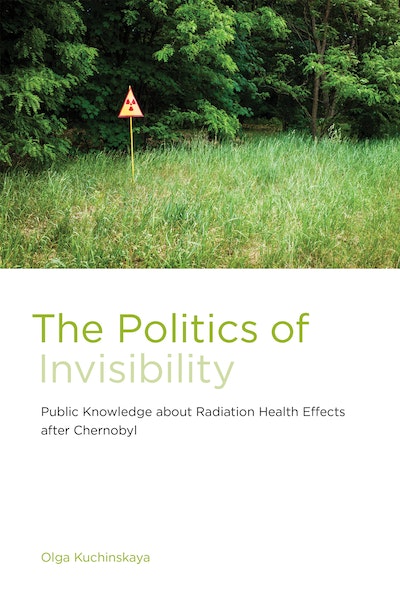- Published: 15 August 2023
- ISBN: 9780262548861
- Imprint: MIT Press Academic
- Format: Paperback
- Pages: 264
- RRP: $80.00
The Politics of Invisibility
Public Knowledge about Radiation Health Effects after Chernobyl
- Published: 15 August 2023
- ISBN: 9780262548861
- Imprint: MIT Press Academic
- Format: Paperback
- Pages: 264
- RRP: $80.00
"This meticulously researched and sensitively argued book shines a light on the little-known public health crisis Chernobyl created in Belarus and the coping strategies adopted by local citizens, largely abandoned by their government, who had to live in an environment haunted by invisible radioactive contamination. The efforts of local researchers, activists, and health officials to make the extent of the catastrophe visible were overwhelmed by regional politicians, international organizations, and journalists telling a story about the 'radiophobia' of Chernobyl's victims. Drawing adeptly on the science studies literature, Kuchinskaya makes an important and original argument about the effort that is required to make a disaster visible. This book will be of interest to readers in environmental studies, public health, Russian politics, communication studies, and nuclear policy."
--Hugh Gusterson, Professor of Cultural Studies, George Mason University; author of Nuclear Rites and People of the Bomb
